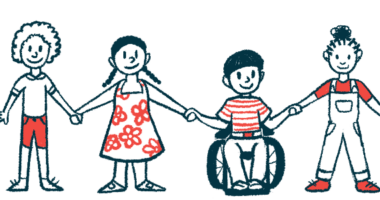Fintepla Approved in Japan to Treat Seizures in Dravet Syndrome
The therapy has been used in patients 2 and older in US, Europe since 2020.

Japan’s Ministry of Health, Labour and Welfare has approved oral Fintepla (fenfluramine) as an add-on treatment for seizures associated with Dravet syndrome in adults and children 2 and older.
The therapy is specifically indicated for patients whose seizures are not adequately controlled by other anti-seizure medications.
The approval was announced by Nippon Shinyaku, which will market Fintepla in Japan under a 2019 agreement with the therapy’s original developer Zogenix, which had applied for approval in the country in late 2021.
Earlier this year, UCB struck a deal to acquire Zogenix and UCB Japan will be responsible for manufacturing and distributing the newly approved therapy in the country.
Fintepla received orphan drug status in Japan last year for Dravet syndrome, which is estimated to affect 3,000 people in the country. The designation is meant to accelerate the therapy’s clinical development and regulatory review.
“We hope that Fintepla will contribute to the treatment for patients suffering from [Dravet syndrome] in Japan,” Nippon Shinyaku stated in a company press release.
The therapy has been used to treat Dravet in patients 2 and older in the U.S. and Europe since 2020.
Fintepla is an oral solution of low-dose fenfluramine originally developed as an appetite suppressant. It works by blocking the re-uptake of serotonin, an important brain chemical messenger. It has also been suggested to act on sigma receptors, a type of receptor protein commonly found at the surface of nerve cells.
Zogenix’s application in Japan was supported by data from an international Phase 3 clinical trial (NCT02826863) that enrolled 143 children with Dravet syndrome ages 2 to 18 whose seizures were not being adequately controlled with standard therapy.
Participants were given either a placebo solution or Fintepla at doses of 0.7 or 0.2 milligrams per kilogram of body weight (mg/kg) per day. These were gradually increased to the target dose over the first two weeks before the study continued for another 12 weeks (about three months).
Results showed the study met its main goal. Compared to a placebo, the higher dose of Fintepla reduced the average number of monthly convulsive seizures by 64.8%.
The therapy’s efficacy and safety profile were generally similar to what has been seen in prior studies. Subsequent real-world data also showed Fintepla reduces seizure frequency in children, adolescents, and adults with Dravet.
The most common side effects in clinical trials included decreased appetite, drowsiness, lack of energy, fatigue, diarrhea, fever, upper respiratory tract infection, and bronchitis — an infection of the main airways of the lungs.
It also may cause alterations in heart function that may be serious, so heart monitoring is typically advised before and during treatment.
The now-approved dosage for Fintepla in Japan is 0.2 mg/kg per day in two divided doses, but it may be altered based on symptom severity. However, it should not exceed 0.4 mg/kg or 17 mg per day in patients who are not on Diacomit (stiripentol), and 0.7 mg/kg or 26 mg per day in those taking the anti-seizure therapy.







